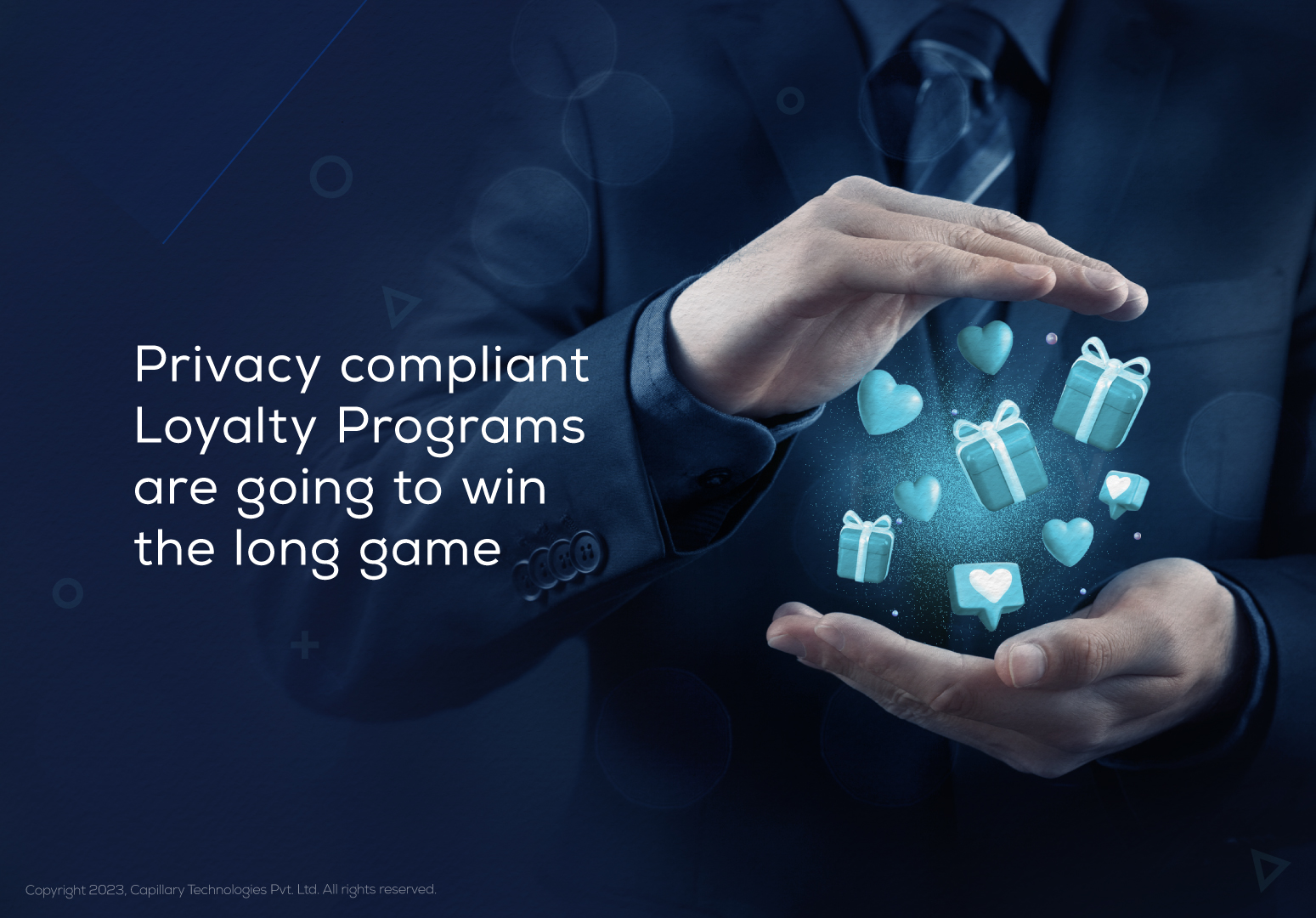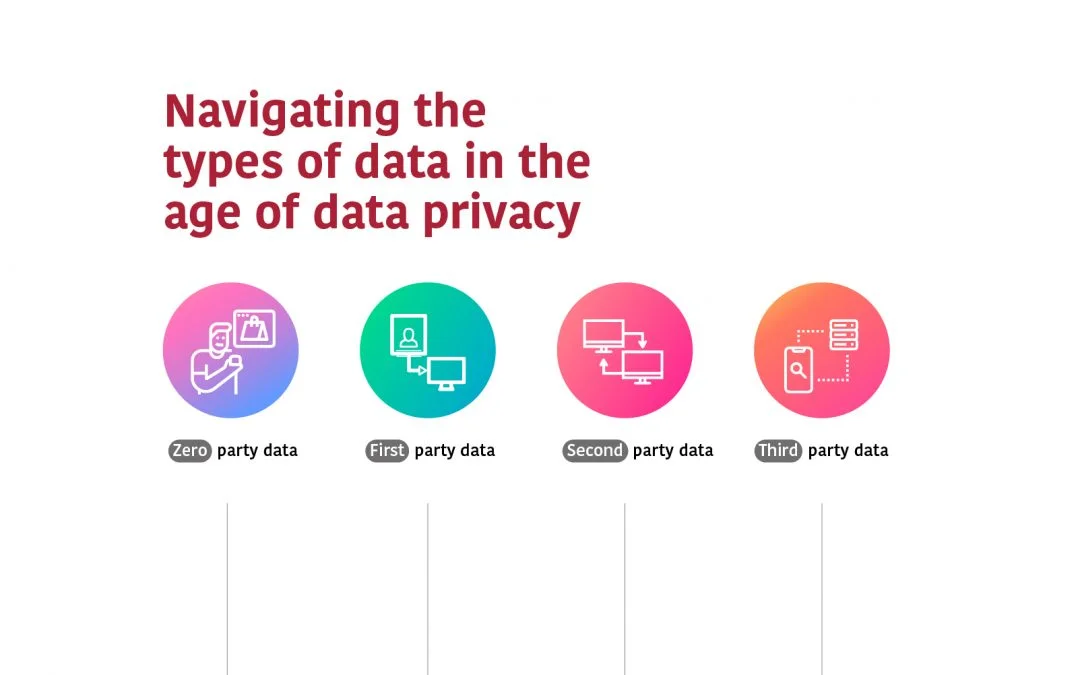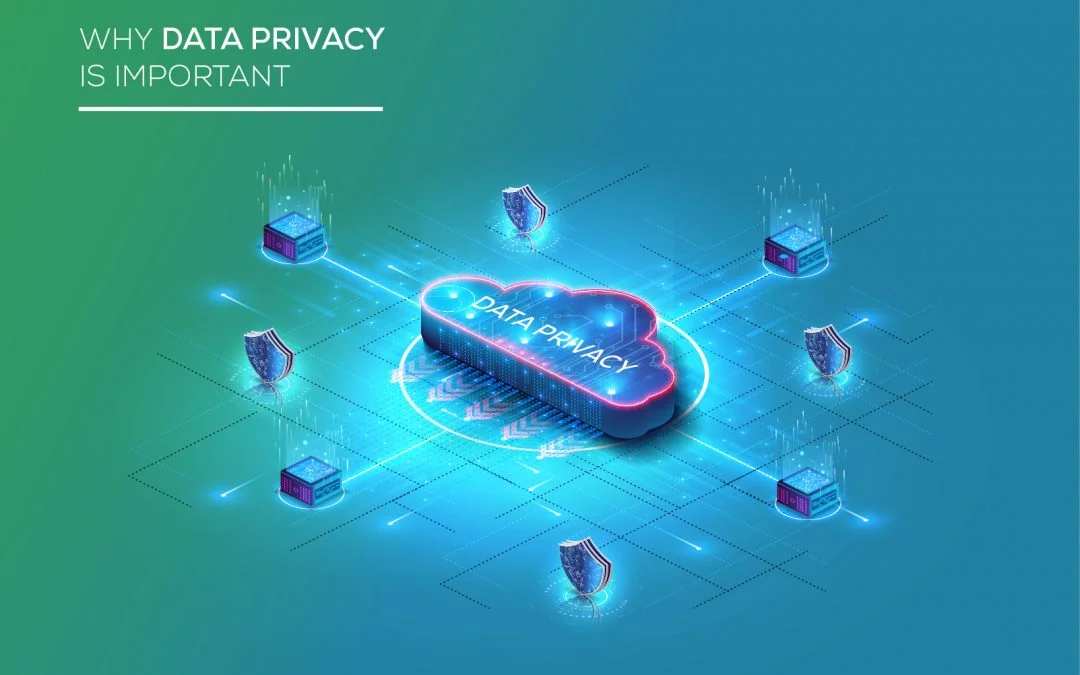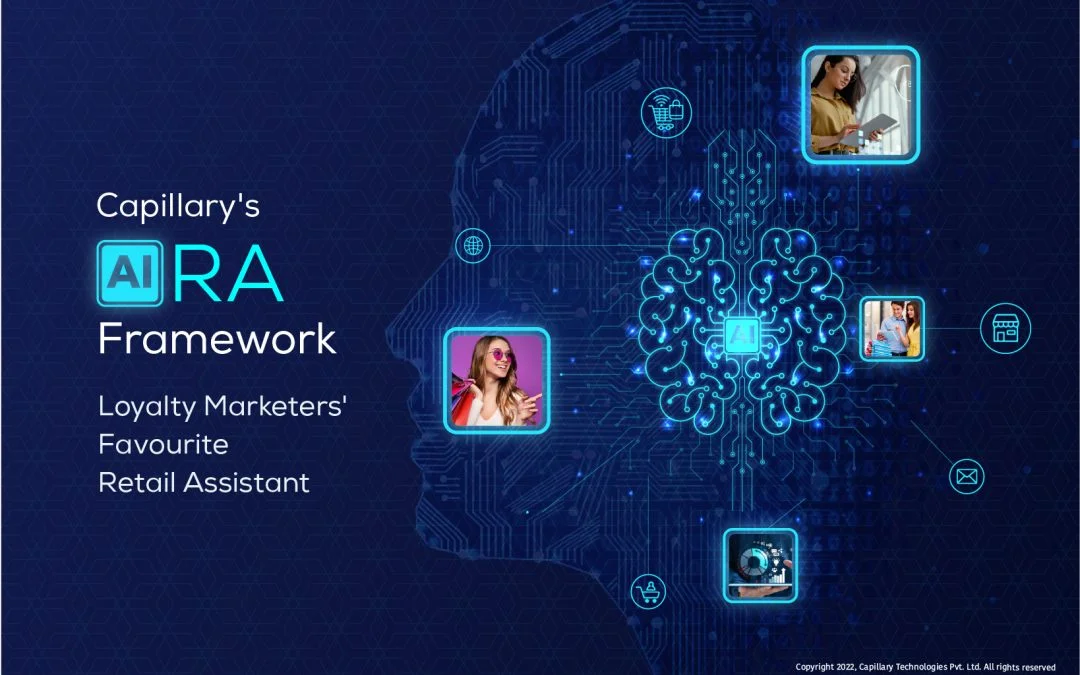- Design industry shaping loyalty programs
- Integrate easily and go live quicker
- Deliver hyper-personalized consumer experiences
Blue Rewards from Al Futtaim Group Shares Loyalty Success Stories and Evolution. Watch Podcast >
Capillary Triumphs with 4 Prestigious Wins at the 2025 International Loyalty Awards! Read more >

We’re living in a world where customers are locking down their data—and for good reason. From government regulations to platform restrictions and a spike in cyberattacks, data privacy is reshaping how brands engage their audiences. But loyalty programs offer a rare path forward. Built on consent, value exchange, and transparency, they remain one of the few places where personalization still feels personal, not invasive. The question is: Is your loyalty program ready for the privacy-first future?
Today’s digital ecosystems, cloud-first architectures, and AI-driven personalization engines are redefining how brands gather and use customer data. And if not handled with care, this same data can become a source of breach, backlash, and brand erosion.
The first half of 2025 has underscored just how vulnerable even the biggest brands are to data breaches. In March, a massive breach at Oracle Cloud’s Single Sign-On (SSO) system exposed sensitive credentials from over 140,000 tenant environments, including access tokens and encrypted keys. Even more recently, Adidas reported a data leak through a third-party service provider, putting customer contact information at risk—raising fresh concerns about the security of loyalty-linked data.
These incidents are part of a broader trend: attackers are using more sophisticated, AI-powered methods to exploit cloud misconfigurations, supply chain weaknesses, and internal access gaps. For brands running loyalty programs—where customer data spans across demographics, behavior, payments, and preferences—the stakes are even higher.
To maintain trust, loyalty programs must go beyond compliance. They must champion consent-first engagement, end-to-end data protection, and privacy-by-design principles at every touchpoint.
Two of the most influential privacy laws remain Europe’s General Data Protection Regulation (GDPR) and California’s Consumer Privacy Rights Act (CPRA). While GDPR continues to operate from a ‘rights-based’ framework—where individuals own and control their data—the U.S. has been evolving its stance.
In 2023, the CPRA came into force, strengthening protections for Sensitive Personal Information (SPI) and adding new rights like:
More recently, countries like India (Digital Personal Data Protection Act, 2023), Brazil (LGPD), and China (PIPL) have introduced comprehensive privacy frameworks, while the EU AI Act, coming into effect in 2025, will govern how brands use AI in customer engagement.
A crucial aspect of these regulations is data localization. For example, GDPR mandates that EU citizens’ data must be stored within EU borders—making cloud hosting, data residency, and sovereignty key considerations for global loyalty programs.
In short: It doesn’t matter where your brand operates—what matters is where your customers are.
Privacy isn’t just a legal mandate; it’s becoming a core part of platform design.
Since 2022, Apple has led with its App Tracking Transparency feature, forcing apps to seek user permission before collecting behavioral data. In 2025, Apple continues to expand Advanced Data Protection, which now offers end-to-end encryption across iCloud and iMessage, even in the face of government requests.
Google, too, is rolling out its Privacy Sandbox, eliminating third-party cookies and promoting safer, on-device alternatives for targeting. Its 2025 app policy mandates that all apps:
Together, Apple and Google are signaling a world where customers—not companies—control their personal data. Loyalty programs must adapt accordingly, ensuring personalization doesn’t come at the cost of privacy.
Loyalty programs can track hundreds of data points per member—purchase history, payment behavior, channel usage, preferences, and more. Here’s how to ensure this powerful data remains an asset, not a liability:
Ask yourself:
Establish protocols that mirror inventory management—acquisition, storage, access control, and safe disposal.
Only collect what is necessary. Limit storage duration and perform frequent data audits to reduce your sensitive data footprint. This not only reduces breach risk but also streamlines compliance efforts.
Follow GDPR-aligned practices such as pseudonymization, where identifiers like names are replaced with randomized strings. Newer techniques in 2025 also include tokenization, data masking, and federated identity models that reduce risk without limiting personalization.
Your data privacy policy should:
Treating privacy as a business enabler—not a compliance checklist—can unlock meaningful ROI.
As Generative AI powers loyalty use cases—from automated journey design to personalized offers—data privacy takes on new dimensions. Ethical AI governance, synthetic data use, and transparent model training will be the next frontier.
Brands must ensure their AI engines don’t just optimize for performance, but respect data boundaries. This is where privacy-first loyalty programs can lead—by showing how AI and consent can co-exist.
In a world where personalization is expected and data sensitivity is rising, loyalty programs stand out as:
They help customers feel valued, not violated. And they allow brands to develop long-term emotional loyalty through transparent, trusted engagement.
With over 400 brands across 35+ countries and 7 billion+ transactions annually, Capillary Technologies powers some of the world’s most complex and secure loyalty ecosystems.
From Data Discovery and Classification to Data Loss Prevention (DLP) and AI Ethics, Capillary’s privacy-first infrastructure ensures you can scale personalization without compromising on trust.
At Capillary, we believe respecting customer data isn’t just ethical—it’s strategic. And the most successful loyalty programs of the future will be the most secure ones.
If you’re navigating the complexities of global data compliance or want to build a loyalty program that’s ready for the privacy-first era, let’s talk.

February 3, 2025 | 4 Min Read
Navigating data privacy? Learn the key differences between z

February 24, 2022 | 4 Min Read
With increasing inclination of marketers towards data-driven

November 29, 2022 | 4 Min Read
aiRA is Capillary's Artificial Intelligence Framework for he